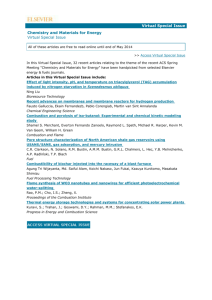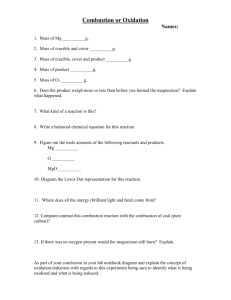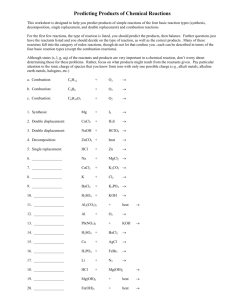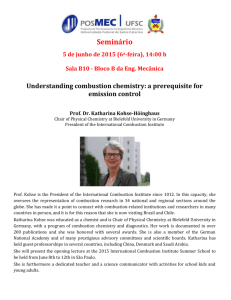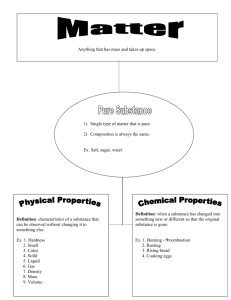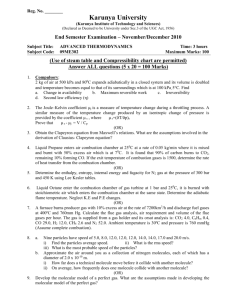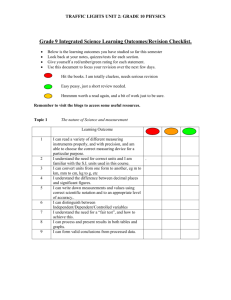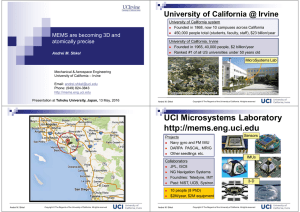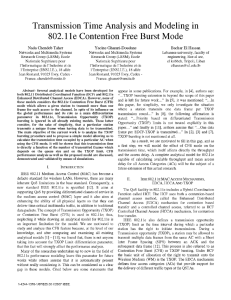BIOMODELLING Modelling of Biomass Combustion in Fluidised Beds Timo Hyppänen
advertisement
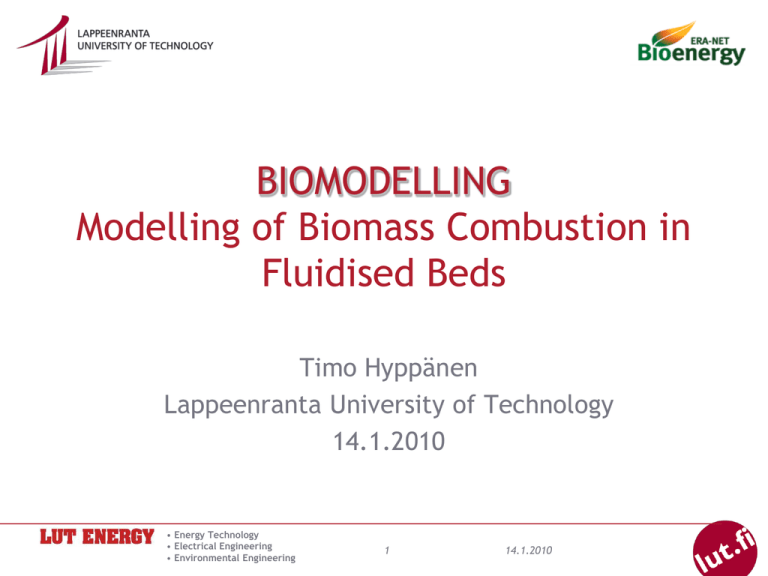
BIOMODELLING Modelling of Biomass Combustion in Fluidised Beds Timo Hyppänen Lappeenranta University of Technology 14.1.2010 • Energy Technology • Electrical Engineering • Environmental Engineering 1 14.1.2010 Content of the presentation • ERA-NET Project Background – Goals, benefits – Organisation – Work plan • CFB modeling • Energy Technology • Electrical Engineering • Environmental Engineering 2 14.1.2010 Background • Need to develop environmentally sound ways to increase utilization of biomass in energy production • ERA-NET Bioenergy is a network of national R&D programmes focusing on bioenergy – Joint call on clean biomass combustion – Modeling of the combustion process • Energy Technology • Electrical Engineering • Environmental Engineering 3 14.1.2010 Project goals • Goal is to develop and improve the modelling methods for biomass combustion in circulating fluidised bed (CFB) boilers – – – – fluidization behavior combustion properties emissions formation heat transfer • Improved models for biomass combustion • Models enable more accurate development, design and analysis of CFB boilers utilizing biomass. • Energy Technology • Electrical Engineering • Environmental Engineering 4 14.1.2010 Benefits • Increased – – – – capability of using renewable energy boiler performance efficiency availability • Reduced emissions • Energy Technology • Electrical Engineering • Environmental Engineering 5 14.1.2010 ERANET PROJECT PARTNERS • Czestochowa University of Technology, Faculty of Environmental Engineering and Protection • Chalmers University of Technology, Department of Energy and Environment, Division of Energy Technology • VTT Technical Research Centre of Finland • Foster Wheeler Energia Oy • PGE Turow Power Plant • Lappeenranta University of Technology, LUT Energy • Energy Technology • Electrical Engineering • Environmental Engineering 6 14.1.2010 BIOMODELLING PGE Elektrownia Turów S.A. ( Polish Energy Group, Turow Power Plant) 3 x 235 MW CFB hot cyclone 3 x 261 MW CFB compact Lignite & biomass •TUROW is a largest CFB utility company • Energy Technology • Electrical Engineering • Environmental Engineering ERANET PROJECT WORK PLAN • Energy Technology • Electrical Engineering • Environmental Engineering 8 14.1.2010 Modelling CFB Fluid Dynamics and Thermal Behaviour • Flow of solids and gases • Fractional material balances • Combustion of fuel •drying •devolatilization •char combustion • Heat transfer • Gaseous reactions • Emissions (SOx, NOx) Reh, L. (2003). China Particuology Vol. 1, No. 5, 185-200. • Energy Technology • Electrical Engineering • Environmental Engineering Modelling CFB Fluid Dynamics and Thermal Behaviour Max Sec. air Reh, L. (2003). China Particuology Vol. 1, No. 5, 185-200. • Energy Technology • Electrical Engineering • Environmental Engineering Fuel O2 Min CO Temperature Modelling of CFB fluid dynamics • CFD multiphase modelling challenging for CFB combustion cases (reliability/speed) • Mass balances must be valid • Semiempirical model used for averaged flow profiles – Gas: Momentum equation with drag force dominating – Solids: First order model to produce experimental profiles, potential flow principle • Mixing of solids and gases is due to nonstationary and small scale flow structures => Dispersion model • CFD getting closer to be utilised • Energy Technology • Electrical Engineering • Environmental Engineering 3-D Model Description • Steady-state combustion model for CFB furnace. • Fractional material balances of solids. • 3-D flow modelling of solid and gaseous species. • 3-D modelling of energy balance. • Submodels required in balance models. • fluid dynamics of solid materials and gases • combustion (drying, devolatilization, char combustion) • gaseous reactions • comminution of solids • heat transfer • emission models for SOx and NOx • Energy Technology • Electrical Engineering • Environmental Engineering CFB3D Model Frame Gas and solids from outlets Furnace outlets Flue gas, fly ash Separator(s) Heat transfer to walls Combustion & other reactions Secondary airs Heat transfer within bed Fuel, limestone, Solids, gas Solids External heat exchanger(s) Solids to return leg(s) make-up Primary• Energy air Technology • Electrical Engineering • Environmental Engineering Bottom ash Flue gas / fly ash recirculation Three dimensional furnace model Example of CFB3D model results. • Energy Technology • Electrical Engineering • Environmental Engineering 14 14.1.2010 BIOMODELLING Methods – laboratory equipment Fuel particle conversion Cold models Pilot-scale • Energy Technology • Electrical Engineering • Environmental Engineering Different scales of experiments and modelling Bench scale Pilot scale Boiler scale EXPERIMENTAL SCALES 1D-MODEL flue gas to stack v b exp( A / T )(d / d ref ) n MODELS AND DESIGN TOOLS Model analyses Vo lati le, mo istu r re ele Mixing Ch ar com ase n+1 n-2 CO combustion n n-1 dYCO kef YCO dt k ef 1 /(1 / kCO m ) bu stio n 3 rc dmc n kmc X O2 dt Models for phenomena • Energy Technology • Electrical Engineering • Environmental Engineering 2 Secondary air 1 Primary air 1-D process models 3-D process models THANK YOU FOR YOUR ATTENTION! • Energy Technology • Electrical Engineering • Environmental Engineering 17 14.1.2010
